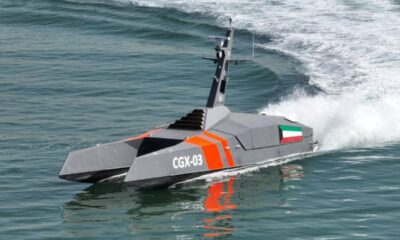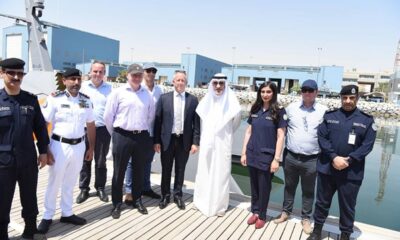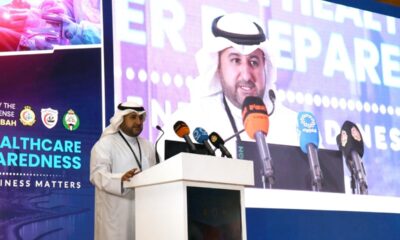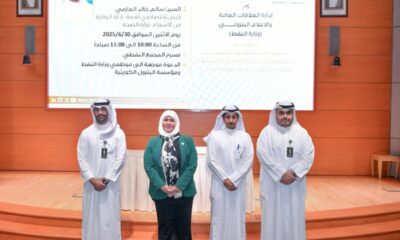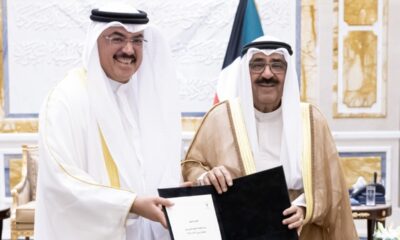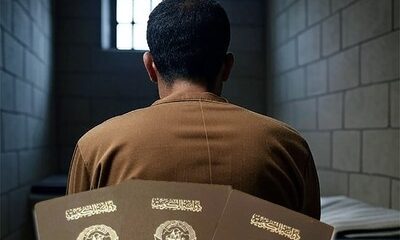KUWAIT: The Embassy of the Islamic Republic of Iran in Kuwait opened a condolence book, on Monday, to honor the victims of the recent aggression against Iran. The event was attended by officials, ambassadors, and media. Iranian Ambassador to Kuwait Mohammad Toutounchi expressed his appreciation for the positions of the Gulf Cooperation Council (GCC) countries, especially Kuwait, regarding the recent events, noting that Kuwait’s Foreign Minister had called his Iranian counterpart in a gesture that reflects the strength of bilateral relations, describing the presence of ambassadors at the embassy as “Noteworthy and Positive.”
The ambassador said in a statement that his country endured twelve days of intense aggression by the Zionist entity, joined by the United States in the final two days, explaining that Iran faced simultaneous attacks from countries equipped with nuclear capabilities and advanced technology, backed by NATO. He emphasized that the planners of this aggression had expected Iran to collapse within days. However, “The unity of the Iranian people inside and outside the country formed a formidable barrier.” He added that US intervention came only after ten days of failed efforts to achieve any ground breakthrough.
Toutounchi revealed that the number of victims exceeded 620 martyrs, with more than 5,356 wounded, including 13 children and 43 women, some of whom were pregnant, adding “Seven hospitals, six health centers, and dozens of ambulances were destroyed. These martyrs cannot be replaced whether they were children, military leaders, or academics, calling for the Zionist entity and the United States to be held accountable before international bodies to prevent such crimes from recurring.
Iraqi Ambassador to Kuwait Al-Manhal Al-Safi
Sudanese Ambassador to Kuwait Awadal-Karim Balla.
Regarding Iran’s nuclear program, the ambassador reiterated Iran’s commitment to the Nuclear Non-Proliferation Treaty (NPT), pointing out that the country’s nuclear program, which represents less than 3 percent of global peaceful nuclear activities, has undergone over 23 percent of international inspections. He argued that this high inspection rate indicates no deviation toward military objectives.
He disclosed that Iran had recently agreed to five rounds of indirect negotiations aimed at reviving the diplomatic track and ensuring the peaceful nature of its nuclear program. He also stressed that Iran’s response against US military and intelligence bases in Qatar was a legitimate act of self-defense and was not directed at any neighboring countries, affirming Iran’s full respect for their sovereignty. He noted that Iran had communicated with Qatari leadership to clarify its position, stating that military bases in neighboring countries used by US forces cannot be considered safe havens for launching attacks.
Meanwhile, the Iraqi Ambassador to Kuwait Al-Manhal Al-Safi expressed his deep gratitude to Kuwait’s leadership, government, and people for facilitating the return of over 3,000 stranded Iraqi citizens by issuing more than 3,500 transit visas in just 12 days. The Iraqi ambassador affirmed his country’s full solidarity with Iran and condemned the aggression, revealing that Zionist aircraft had breached Iraqi airspace, prompting Baghdad to file an official complaint with the UN Security Council.
In the same context, the Sudanese Ambassador to Kuwait Awadal-Karim Al-Rayah Balla offered his condolences to Iran, describing the incident as “A blatant and unacceptable attack.” He called for regional unity to confront shared challenges, emphasizing that the targeting of Iran threatens all free peoples in the region. He urged a joint response to protect stability and to revive the Palestinian cause as a priority. The Sudanese envoy also pointed to the double standards in the international system, calling for crises to be addressed through international legitimacy rather than the imposition of forceful agendas.





